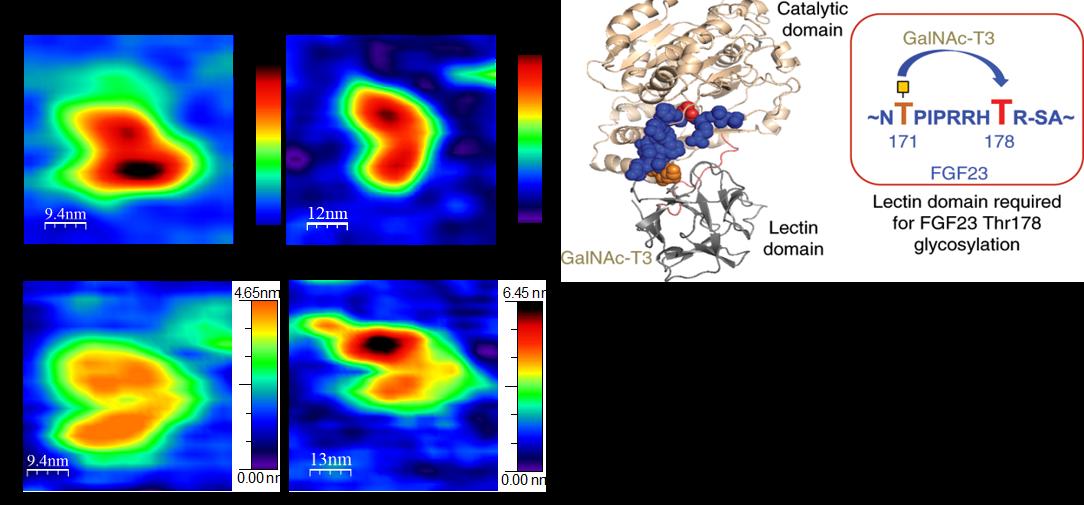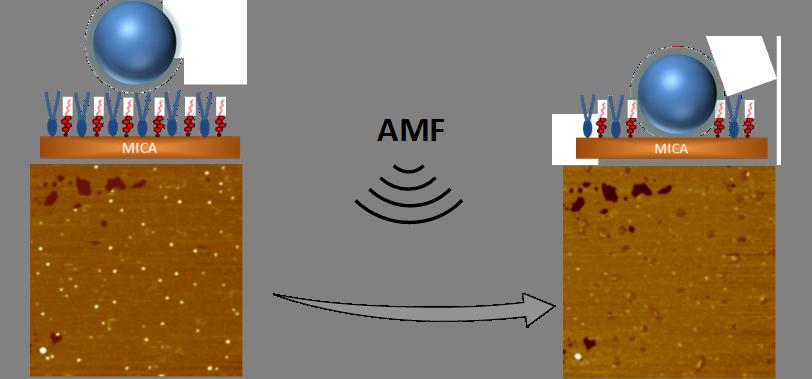BIOLOGICAL AFM
AFM is probably the less invasive probe in the toolbox of Nanotechnology. In particular, it is able to profile a sample with great accuracy and applying small enough forces as to not damage biological materials. Characterizing the behaviours of single biomolecules by AFM provides considerable novel insights into the underlying mechanisms guiding life activities, contributing much to cell and molecular biology.
The possibility to scan in aqueous media and to perform force spectroscopy, allows us to address the analysis of enzymatic mechanisms, molecular recognition pathways, regulatory processes and forces that govern biosystems using AFM in buffer at the single-molecule level. We often make use of the identification of receptors on substrates and on cellular and bacteria membranes using functionalized tips with proper receptor-binding ligands.

AFM images of single human GalNAc-T3 molecules showing different conformations upon ligand binding and catalysis at near physiological conditions to unveil the catalytic mechanism of this two-domain enzyme.
Another primary line of research pursues the study of model cell membranes incorporating phospholipids, sterols, glycosphingolipids, proteins, etc… under controlled environments available at the AFM facility. These membranes are prepared using the Langmuir-Blodgett and Langmuir-Schaefer technologies. We can then study their morphology and nanomechanical properties in air or liquid media. La interacción de estos modelos de membranas celulares con nanopartículas, fármacos o xenobióticos es también un campo de interés en los laboratorios LMA.

The application of an alternating magnetic field to a model cell membrane on which magnetic nanoparticles have been located, induces a local heating that allows a fluidization of the membrane and penetration of the nanoparticles through the membrane.
Laboratorio de Microscopías Avanzadas
We are a unique initiative at national and international levels. We provide the scientific and industrial community with the most advanced infrastructures in Nanofabrication, Local Probe and Electron Microscopies for the observation, characterization, nanopatterning and handling of materials at atomic and molecular scale.
Contact information
Campus Río Ebro, Edificio Edificio I+D+i
Direct Links
© 2021 LMA | Website developed by o10media | Política de privacidad | Aviso legal | Condiciones de uso | Política de Cookies |






